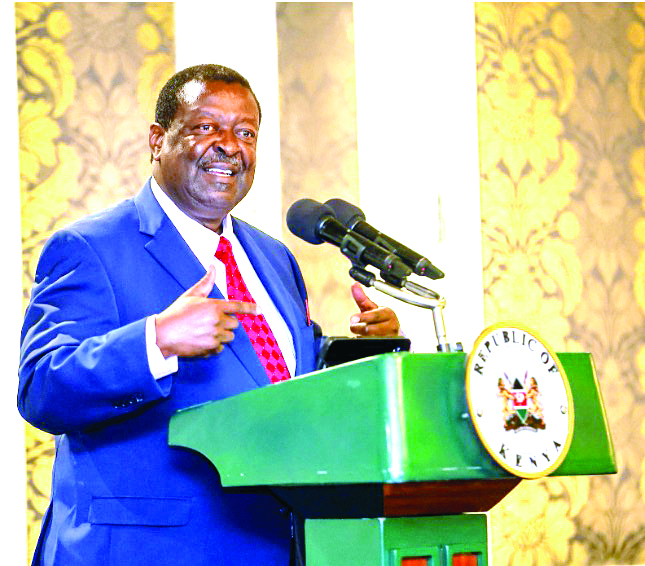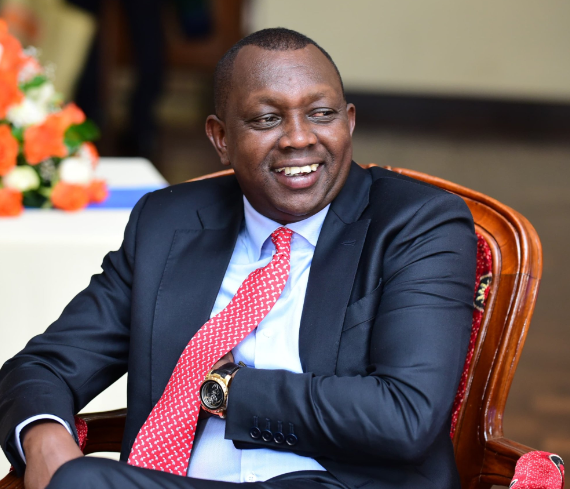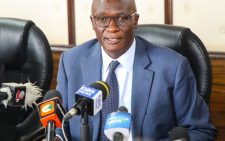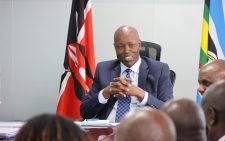Mudavadi call to stakeholders on foreign relations

Prime Cabinet Secretary Musalia Mudavadi has urged media stakeholders to give their comprehensive input as part of enriching the revised foreign policy.
Mudavadi urged the stakeholders to come up with a written submission that can be incorporated into the 2024 Foreign policy document and the Sessional Paper to be tabled in Parliament.
“I urge you to use this forum to candidly share your insights, experiences and challenges, in order to help us shape the trajectory of the revised foreign policy for the good of our nation,” he said.
Mudavadi also the Foreign and Diaspora Affairs Cabinet Secretary made the remarks when during a media roundtable on the review of the foreign policy in Nairobi on Thursday.
For long, he noted that citizens have perceived foreign policy as a secret and detached agenda that is majorly a preserve of the executive and to broaden ownership of the nation’s foreign affairs strategy of Kenya, there is need to move along with all arms of government and Kenyan citizens.
“We shall be going beyond the review of the 2014 Foreign Policy document to include tabling the policy reforms in the form of a Sessional Paper to Parliament for exhaustive discussions. In this way, our milestones will be twofold,” he said.
Adequate funding
He said this will help the Ministry to present its case to Parliament for adequate funding to effectively run its missions and cater for the welfare of our foreign service.
Secondly, he said the Government will be able to involve Kenyans in the foreign policy formulation, development and implementation, even as he envisaged consequential amendments to the Foreign Service Act, 2021.
Mudavadi also stated that the media plays an essential role in shaping narratives, encouraging dialogue on topical issues and holding political leaders and decision-makers accountable.
He said the media stakeholders are important in agenda setting and influencing national and global insights, adding that media diplomacy continues to play a critical role in responding to mega-trends including globalization, regional integration and global governance.
“This is more profoundly evident in the international relations of our time, which is marked by a rapidly shifting geopolitical landscape and persistent transboundary concerns including climate change, cybersecurity, global pandemics, human rights, economic instability and mutating threats to peace and security,” he explained.
“As media stakeholders let us ask ourselves a number of questions including what are the consequences of not having a Foreign Policy at all, or having a lackluster or wrong one?” he further posed.
In this era of “breaking news”, 24-hour news cycles, Mudavadi said social media and instant global communication, how the media reports on global affairs not only informs but also influences policy, public opinion and international relations.
National interests
He said it will be critical to interrogate ways of collaboration in protecting the country’s national interests and positioning Kenya in the global arena.
“Looking at the ‘high-voltage’ concentration of media experts and professionals in this room, several rhetorical questions run through my mind. For instance, what opportunities and risks arise from globalization of digital communication and journalism? What options exist for states to engage media for positive outcomes in this era of misinformation, disinformation and weaponization of communication technology? How can we balance between freedom of the press and national security obligations?” he posed
The Foreign and Diaspora Affairs Cabinet Secretary also said the roundtable is part of the ongoing consultative process with stakeholders on the review of Kenya’s 2014 Foreign Policy document.
“Your engagement in this process demonstrates the importance that the Government attaches to the media fraternity as a key stakeholder in enhancing public understanding of national policies, projects and programmes,” he stated.
The Ministry of Foreign and Diaspora Affairs started this process by holding a colloquium on July 30 that generated useful insights towards the review of the Kenya Foreign Policy document.
“It is evident that Foreign policy is no longer solely the purview of diplomats and political leaders. The Fourth Estate plays a critical role in shaping and influencing foreign policy, serving as a key intermediary between governments, policymakers and the citizens,” he said.
The CS said the Government has intentionally included the media in this review process because never before has it integrated open governance and broadened the outreach of stakeholder engagement in foreign policy development as is the case now.









